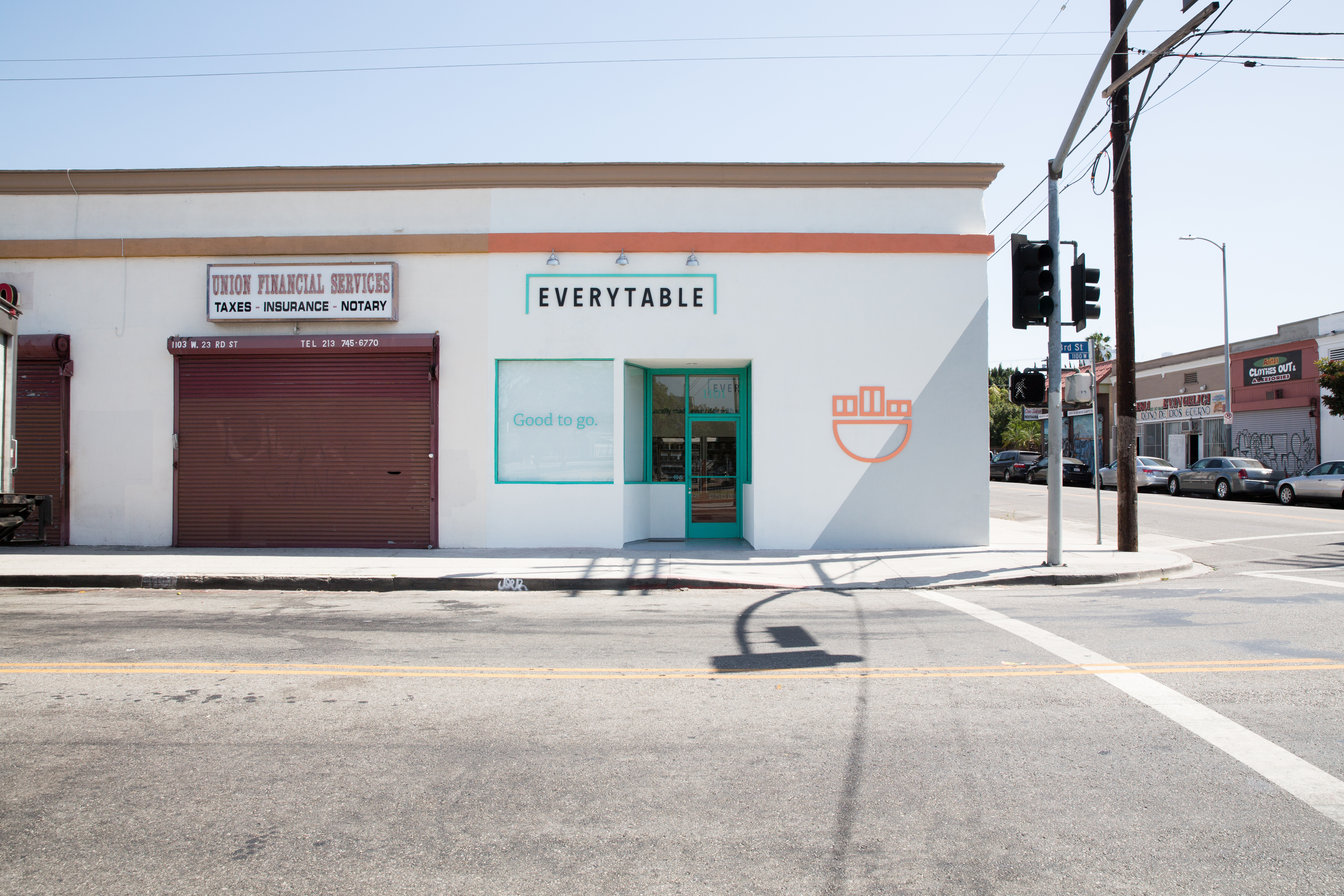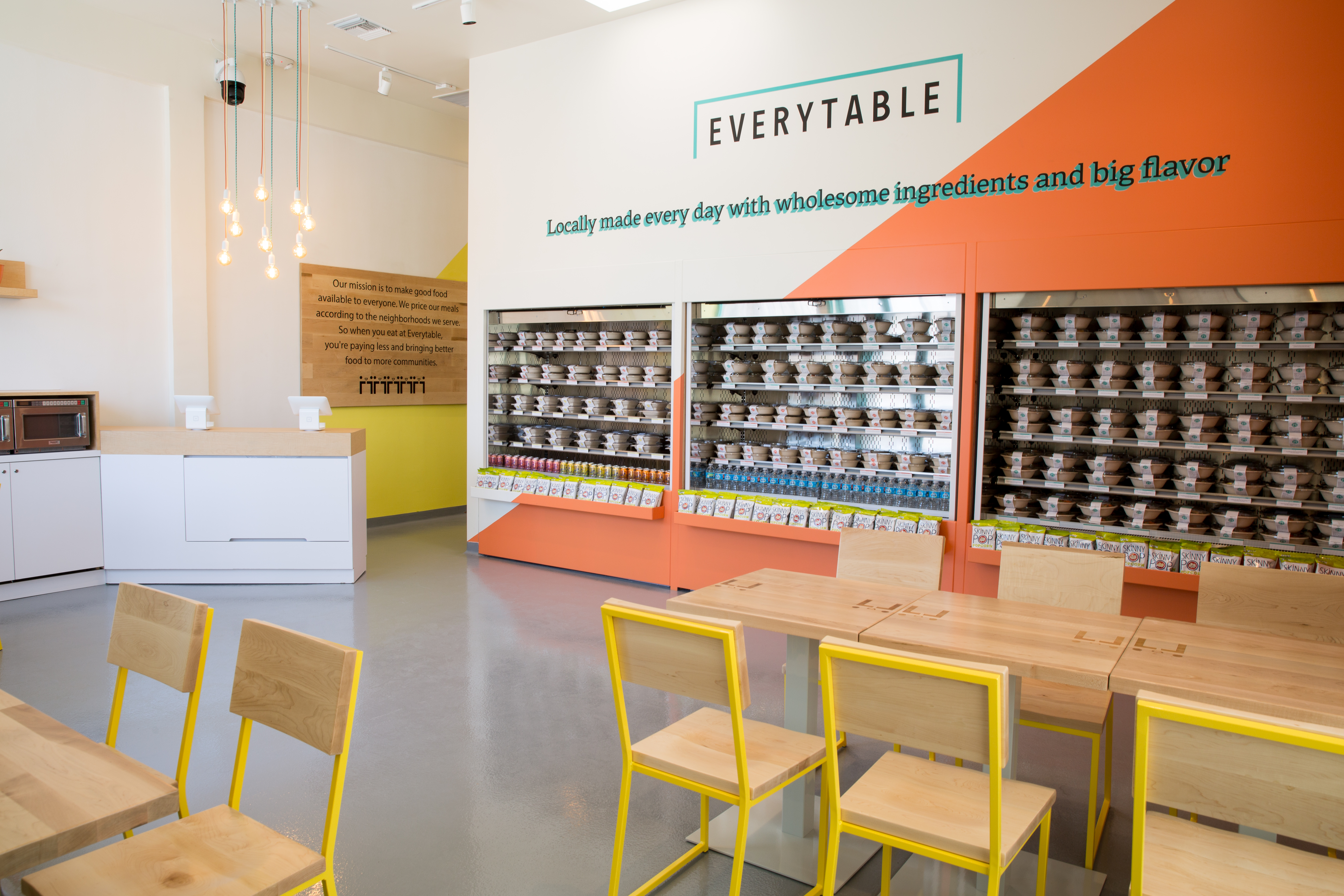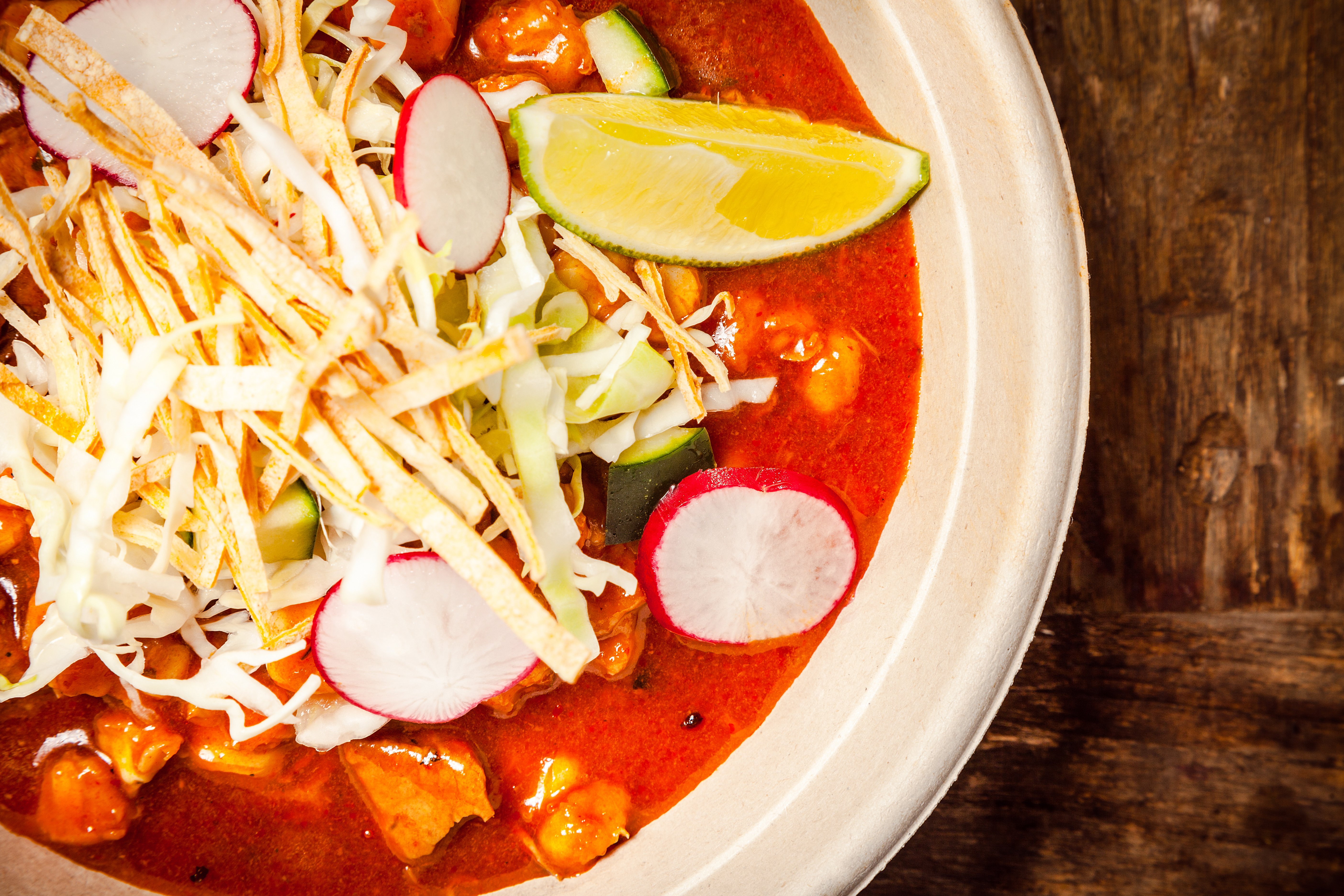These Two Finance Execs Quit Their Jobs to Make Sure Everyone Can Afford Healthy Food
By:
Tucked in a corner of Southern Los Angeles is Everytable — the first location of a newly developed franchise of healthy fast-food restaurants, where the average cost of a meal is only $4. The affordable prices of their seasonal foods are based on one thing: the average income in a given neighborhood.
The variable pricing model was created by Sam Polk and David Foster, two men who abandoned their careers in the finance industry to pursue their passion of making healthy food accessible, especially for those living in food deserts.
ATTN: spoke to Everytable's co-founders about how their business model is revolutionizing the way we approach communities with less access to healthy, affordable food.
%20(1).jpg?auto=format&crop=faces&fit=crop&q=60&w=736&ixlib=js-1.1.0) Rudy Espinoza
Rudy Espinoza
ATTN: Before you founded Everytable and Groceryships, Sam, you were a hedge fund trader. What inspired you to leave Wall Street and start these ventures centered on food accessibility and education?
Sam Polk: I left Wall Street because I didn’t like where I was standing in the world. I was starting to realize that my entire career had been about accumulating for myself; I wanted to figure out how I could contribute instead. I’d been deeply influenced by Taylor Branch’s three-part series on Martin Luther King, Jr. and the Civil Rights movement, and I realized that I wanted to be part of changing the world for the better.
I ended up in the food world because I have a personal connection. My entire family was overweight, and I was an overweight kid who got teased and bullied. When I started to understand that there were areas of the city I grew up in where families didn’t have access to healthy food and were suffering from incredibly high rates of food-related illnesses like obesity and diabetes, I knew I wanted to do something to help.
Groceryships (scholarships for groceries) was the first step in that direction — it’s a nonprofit organization working at the intersection of poverty and food-related illnesses. Everytable, a social enterprise that makes healthy food affordable for all, was an idea born out of our work at Groceryships. Many of the Groceryships moms had several kids and multiple jobs, and we kept hearing that while they appreciated all of the fresh produce we were bringing to them, they're all busy and often have to buy food on-the-go — and in South Los Angeles, that means unhealthy and processed fast food. We saw this as an opportunity to provide these moms with a new healthy yet affordable alternative. Together with my co-founder David Foster, a whip-smart former private equity guy with a heart of gold, we designed Everytable to offer nutritious meals through convenient grab-and-go locations, for less. Our first location opened in South Los Angeles in late July.
 Gina Cella
Gina Cella
ATTN: What was the thought process behind creating your variable pricing model?
David Foster: We’re the first to bring a variable pricing model to this industry. We came to this idea after asking ourselves "why everyone should have to pay the same amount?" With such income disparity, why not build a model where everyone can access the same meals at a price that makes sense for them? We started with creating a low-cost business model (using a central kitchen and small grab-and-go storefronts) that would allow us to sell food at extraordinarily low prices. We then took into consideration the incomes in the neighborhoods where we’d be opening locations in order to make sure our meals would be affordable in every neighborhood.
 Gina Cella
Gina Cella
ATTN: What do you hope customers will gain from their Everytable experience?
SP: First and foremost, we hope they love the food. We hired some of the best chefs in the country, and created a menu that celebrates the cultures and cuisines of L.A. We’re so proud of our menu, because it’s not only incredibly healthy, it’s also delicious, filling, and with such variety that there’s something great for everyone.
We also hope that our customers understand that with their purchase, they are joining a community of people banding together to solve this problem of food deserts. The food is so delicious and an incredible value, and more importantly, each purchase is supporting a company that is dead-set on making healthy food available and affordable in every community - first in L.A., but soon across the country.
We believe that if customers understand how deep our commitment to our social mission is, they will become not only regular customers, but also advocates for our company and others like it.
ATTN: How have you involved members of the local community with your restaurant, and how has that impacted the community as a whole?
SP: Everytable was born from the South LA parents from Groceryships. From the earliest stages, we listened to what they wanted and needed, and crafted our offering to serve them. In fact, we involved them in the actual creation of the dishes. For example, long-time Groceryships leader Ana Guzman started as a participant in one of the groups, became a leader of several other groups and later came to work for Groceryships as a community manager. In addition to her other myriad talents, she’s also an incredible Pozole chef — "the best in South LA,” at least according to Ana. We knew how popular Pozole was with our moms in South L.A., so we brought Ana in to work with Chef Craig Hopson to co-create this incredible Pozole Rojo for our menu that stays true to the authentic roots of the dish, but also brings in a little flair from one of the best chefs in the country. Our whole menu is like that — with traditional recognizable dishes like Blackened Catfish, Jerk Chicken, Vietnamese Chicken Salad, our whole menu is beyond delicious but also nutritious. It will have you coming back the next day.
 Jason Clark
Jason Clark
Why did you choose South Los Angeles for your first location?
SP: We came to South L.A. in 2013 to start Groceryships because it’s one of the poorest neighborhoods in the city. Per capita income is $13,000 per year, and life expectancy is 10 years lower than more affluent areas. There’s a lot of reasons for that, but one is that South L.A. is considered a "food desert," where there’s little fresh food for sale, and tons of fast food. We saw an immediate calling to bring healthy on-the-go food to familiar faces in the neighborhood, so we created Everytable in the community.
ATTN: What's the most common criticism you've heard about Everytable? How have you responded?
DF: So far, we've been thrilled by the positive community reaction and outpouring of support. A few people have asked us whether we're concerned about our South L.A. neighbors actually wanting to eat healthy foods like kale and quinoa. From speaking with our customers and friends in the local area, we know that the community wants to eat healthily — they just didn't have the option before Everytable. We’re also fortunate to be working with Craig Hopson, our extraordinary Executive Chef, who has created a menu that is rooted in and celebrates the neighborhoods we serve. There is something for everyone to love! Our chefs are taking local flavors and serving up wholesome, fresh dishes, made from scratch daily. The excitement shows — we've noticed that our customers have been walking out the door with three or four Everytable meals to stock up for the week, and returning for more on a regular basis.
%20(1).jpg?auto=format&crop=faces&fit=crop&q=60&w=736&ixlib=js-1.1.0) Rudy Espinoza
Rudy Espinoza
ATTN: What’s your vision for the future of Everytable?
DF: Right now, our initial focus is on Los Angeles. In the future, we're planning to expand to more neighborhoods in markets that lack access to healthy food. Stores in food deserts are mostly self-sustaining, while stores in more affluent areas help us grow. Each store is an important part of of the larger community that, together, is democratizing healthy food.
